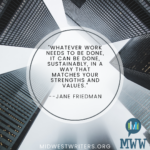In this masterclass, you’ll learn the mechanics of how traditional publishing works and how to prepare submissions materials for your novel, memoir, or nonfiction book. Learn what it takes to capture the attention of a New York publisher or literary agent, plus what expectations you should have so that you approach this (often frustrating) process with the right expectations and mindset.
This masterclass will cover the following:
- Key traditional publishing paths. Big Five, midsize, independent, university … The world of book publishers is vast and they all operate a bit differently. Learn about the key categories of book publisher with tips on evaluating them without an agent.
- Literary agents—who they are and what they do. If you want to sell your work to a major New York house, you’ll need an agent. You’ll learn what the standard agenting practices are and why you might want one.
- Research markets (agents and editors) for your work. We’ll look at the major tools and resources for identifying the right agent or publisher for you.
- Query letters for novels and memoirs. Your one-page query letter should be short and sweet and pack a punch. Learn what it means to sell your story, and how to avoid problems that plague (and sabotage) writers in this critical document.
- The dreaded synopsis. Few, if any, writers enjoy writing a synopsis of their book, but agents like to see how you’ve structured (and ended) your novel or memoir without reading the manuscript. Understand how to pull it off without it sounding dead inside.
- An overview of nonfiction book proposals. Nonfiction writers typically submit a book proposal instead of a manuscript. This is one of the more challenging business documents you’re likely to tackle. This class can only offer highlights of proposal writing, but you’ll be given resources for researching and writing a full proposal. We’ll also talk about the gray area of memoir and whether memoirists should prepare a book proposal.
- Pitching at conferences. If you attend a writing conference or workshop, you may have the opportunity to pitch your work directly to an agent or editor. But if you’re nervous (and who isn’t?) then you can make a bad first impression. We’ll discuss how to take advantage of a pitch opportunity.
About the instructor
Jane Friedman spent 15 years working inside the traditional publishing industry and is the former publisher of Writer’s Digest. Her most recent book is The Business of Being a Writer, Second Edition (The University of Chicago Press, 2025), a comprehensive guide on how to make a living as a writer. She has been a full-time freelancer and publishing consultant since 2014, and maintains an award-winning website for writers at JaneFriedman.com.
Click Here to Register

